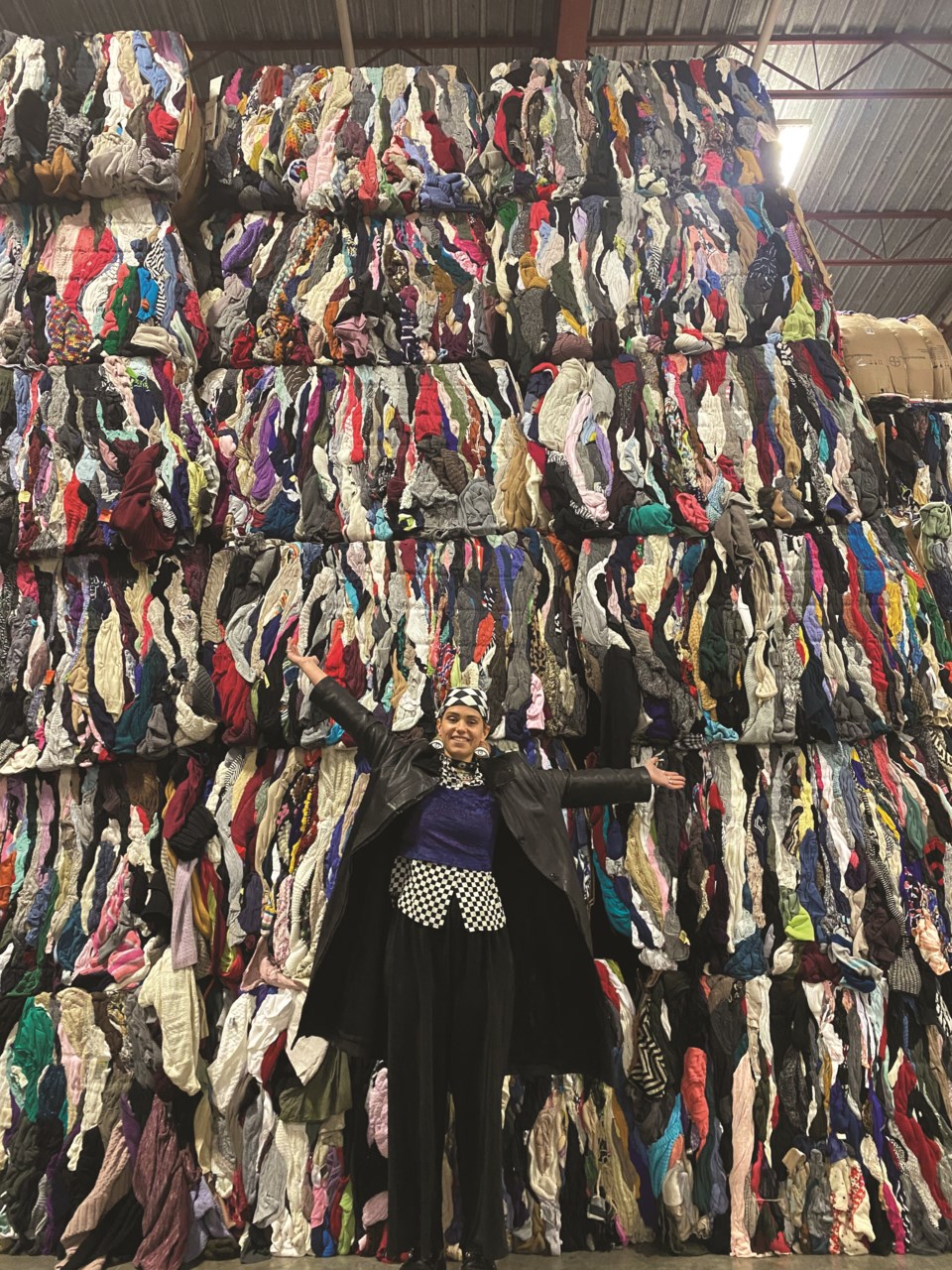Amy Rafferty, owner of local vintage shop The Velvet Underground, has been heartened by the growing awareness she’s seen build in the past couple years around the harmful impacts of the massive, global fast-fashion industry.
“You definitely feel like people are waking up,” says Rafferty, “until you search ‘Shein haul’ on TikTok. I don’t recommend it.”
Rafferty is referring to a popular TikTok trend that (usually) sees young women unboxing hundreds of dollars worth of clothes from the fast-growing Chinese retailer known for its absurdly cheap—and cheaply made—products. Today, Shein is the world’s largest online-only retailer, releasing a mind-boggling 700 to 1,000 new products every single day.
“Apparently it does more damage to the environment than Amazon, just to give you some kind of an idea of how bad this brand is for the planet,” Rafferty says.
Shein is just the largest and arguably most aggressive purveyor of fast fashion in an industry that accounts for more than 10 per cent of global carbon emissions—more than the aviation and shipping sectors combined—and consumes approximately 100 million tonnes of oil every year. But with the pandemic motivating consumers to rethink their environmental footprints, it was only a matter of time before folks began to seriously look at the clothes hanging in their closet.
“I have no problem buying new now and then and I don’t judge people. To each their own,” said Therese Lundgren, owner of Déja Vogue Boutique. “But I also think, with the push around environmental impact, it’s been exposed how insane this consumerism craziness is that’s been going on for a long time. There’s all this shit ending up in piles everywhere.”
For a number of reasons, Whistler has long had a thriving vintage and second-hand scene, counting a number of consignment shops such as Déja Vogue in Function, along with Velvet Underground (which recently relocated from Function to the village), Vula Apparel and Sophie’s Closet, also in the village. That’s before you mention regular pop-up shops, both online and brick-and-mortars, from brands like Strange Daze Collective, and the granddaddy of all Whistler thrifting, the trusty Re-Use-It Centre, which jumped into the online retail fray during the pandemic with the launch of its digital consignment shop, the Re-Love-It Store.
Part of that success is simply the local extension of a longer trend that has seen demand skyrocket for collector vintage pieces. Even before the pandemic shut down flea markets across North America, the ’90s nostalgia market was heating up, reaching a boiling point in the fall of 2020 when a T-shirt from the 1992 Disney animated film, Aladdin, sold at online auction for a whopping $6,000.
“T-shirts and sneakers are out of control. It’s almost like buying stocks,” Rafferty says. “If you find a collector that’s wanting that and they have that much money, they’ll buy it at whatever cost it takes and then that drives the whole market up.”
But Whistlerites aren’t just motivated by fashion. Far from it. Economics are an obvious driver in such an expensive town, and given the constant churn of residents here, there’s usually a bargain to be found. Increasingly, though, local consumers are looking for ways to increase the lifespan of the items they wear for environmental reasons.
It’s why Rafferty wanted to partner with sustainable retailer ecologyst on its new Second Life venture, which sees the Canadian-made clothing manufacturer breathe new life into its products. The way it works: sellers can list their used ecologyst pieces on the Second Life website, and in return will get a gift card they can either put towards a Second Life item or a new ecologyst product.
“Really what it does immediately off the bat is reduce emissions by 80 per cent versus a product that is purchased new. So not only do we want to provide life-long gear, but also to not have to always create net new product in order for there to be value,” explains Lisa McAnulty, sustainability specialist with ecologyst. “It’s really changing the perception of clothing as a valuable tool rather than a throwaway piece.”
It would stand to reason a model that actively discourages the buying of new clothes wouldn’t align with the mandate of a clothing manufacturer and retailer, but as McAnulty explains, a more sustainable approach is actually better for business in the long run.
“I think it’s a beautiful pairing with our business model,” she says. “We really want to make sure that we’re not overproducing in the first place. Most brands will create thousands, if not tens of thousands, millions or billions of units. We intentionally create fewer, better main pieces that are built to last ... When you look at some of these other brands, there are economies of scale, so it’s a very intentional choice to create longer lasting products.”
ecologyst is teaming with The Velvet Underground for a pop-up on Saturday, March 19 from noon to 6 p.m. at the Main Street ecologyst store. Along with vintage items handpicked by Rafferty for sale, there will be staff on-hand educating shoppers on the new Second Life initiative. Learn more at ecologyst.com/pages/second-life.





